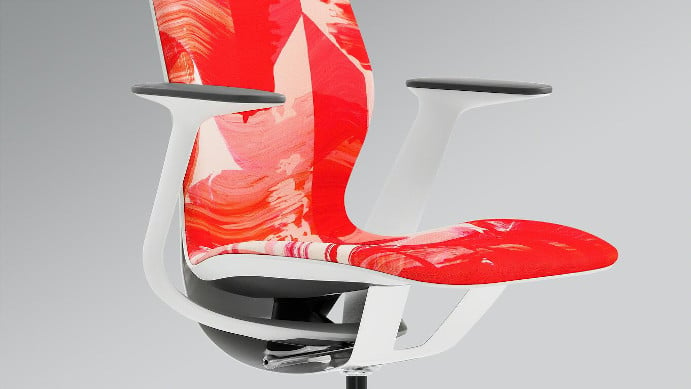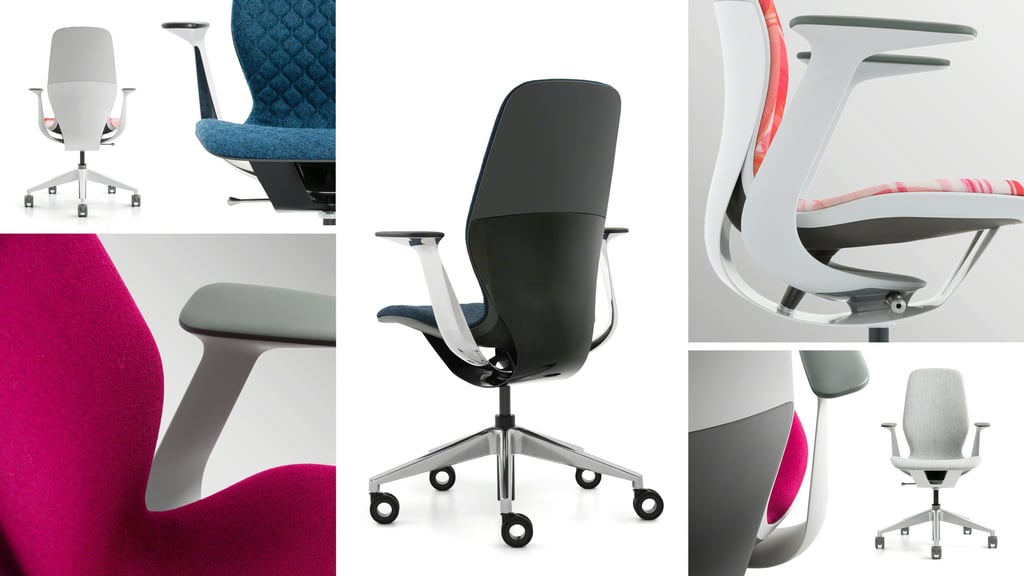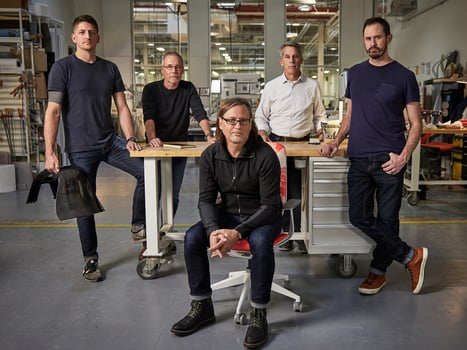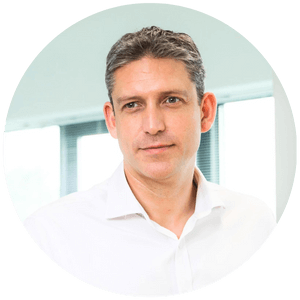The company’s materials science breakthrough led to an all-new chair design that intuitively responds to human movement without the use of mechanisms.

By James Ludwig, Steelcase's Vice President, Global Design & Engineering
Today, we revealed SILQ™ live in New York — a chair we believe truly transforms seating design. Through an innovation in materials science and a patent-pending process, Steelcase designers and engineers created a new high-performance polymer material that emulates the qualities of carbon fiber at a mass market price. This material, combined with the sensuous curves of the design, allows SILQ to respond to natural movements of the human body without the use of mechanisms typically required in high-performance seating designed for the workplace. The result is a chair that behaves more like an organism than a machine – a new archetype in office seating.
Our Journey to Silq
The idea behind SILQ comes from our deep belief about design. The visual language, performance language and material composition should come together to create something that’s truly unique. We took inspiration from aerospace, the motion of a high performance prosthetic leg and sculpture, among other things, to understand how the combination of advanced materials and shape could create a simple system that is incredibly thin, extremely strong and highly responsive.
Our team had a vision for an entirely new way to design a chair. They imagined replacing the hundreds of parts needed for a fully adjustable task chair with a simple system, where the material becomes the mechanism.
We first created a premium version of SILQ in carbon fiber. But we knew we needed to innovate further to reach every audience. Our team continued prototyping and invented a new material and manufacturing process resulting in a high-performance polymer that behaves like carbon fiber.
The way SILQ is shaped, what it is made of and the way it performs are inseparable. We pushed the boundaries of materials science and the material became the mechanism.
Designed for today's workers
SILQ is designed for the way people work today. People at work are moving from one space to another and are less likely to sit at an assigned desk all day. They have less time to adjust mechanisms and need a chair that is intuitive to use. The way SILQ responds to a person’s posture and stature is unique to each user because of the way the materiality, design and motion of the human body come together. Height is the only adjustment necessary for a tailored and unique experience.
The simplicity of this chair means anyone who sits in SILQ is going to be supported and delighted no matter where or how they are working.
A unique canvas

SILQ offers an expansive variety of material combinations, including digital printing options, to allow interior designers to create virtually limitless bespoke versions for their clients.
For more information about SILQ, we invite you to visit info.steelcase.com/silq-steelcase. The chair will be available in the new high-performance polymer as well as carbon fiber. The starting list price for SILQ is £686 and will be available in Europe in Autumn 2018.
Interested in seeing Silq, submit the form below to arrange a viewing in London:
 Ludwig’s small team of designers and engineers who created SILQ. (L to R: Mark Spoelhof, Bruce Smith, James Ludwig, Kurt Heidmann and Nick Deevers)
Ludwig’s small team of designers and engineers who created SILQ. (L to R: Mark Spoelhof, Bruce Smith, James Ludwig, Kurt Heidmann and Nick Deevers)
 James Ludwig is vice president of Global Design & Engineering for Steelcase. Since 2008, he has led a global team who together make up the Steelcase Design Studio and create products for the Steelcase, turnstone and Coalesse brands. Additionally, James oversees design direction of all Steelcase showrooms and WorkLife Centers and leads global project management. An architect and industrial designer, James joined Steelcase in 1999.
James Ludwig is vice president of Global Design & Engineering for Steelcase. Since 2008, he has led a global team who together make up the Steelcase Design Studio and create products for the Steelcase, turnstone and Coalesse brands. Additionally, James oversees design direction of all Steelcase showrooms and WorkLife Centers and leads global project management. An architect and industrial designer, James joined Steelcase in 1999.









